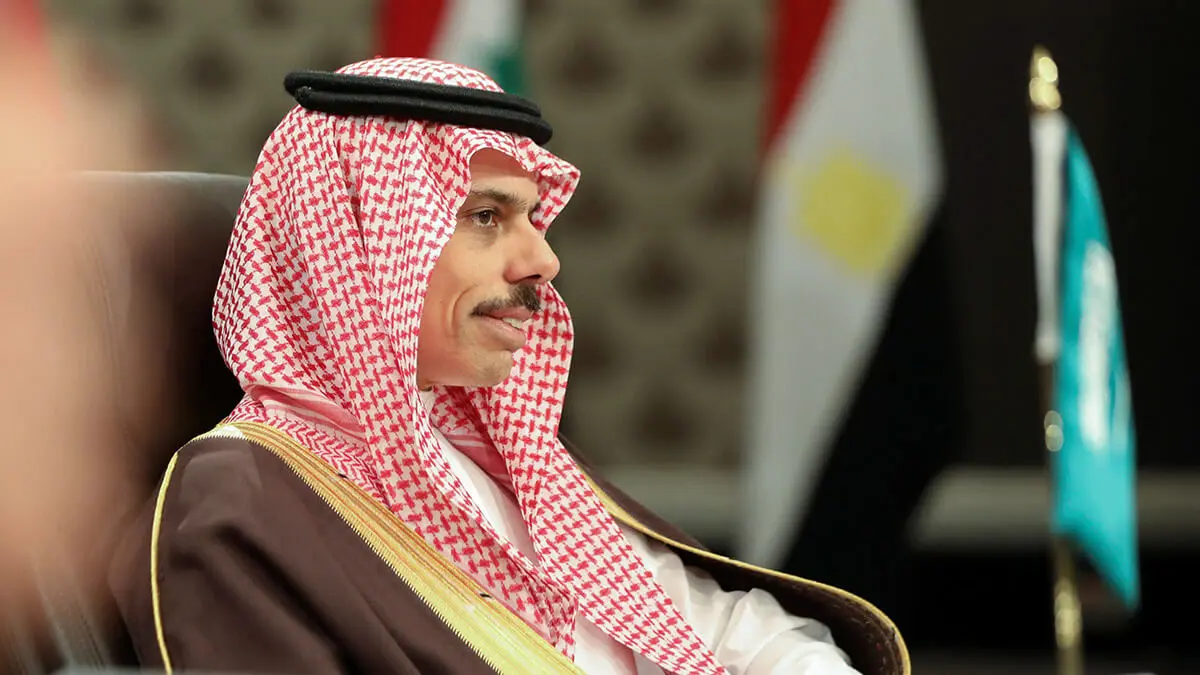Saudi Arabia rejects normalisation with Israel without an independent Palestinian state

- The conflict of interest and proposals for resolution in the region
- The rejection of the proposed solution by the United States and Israel
Saudi Arabia has made it clear that any rapprochement with Israel depends on the creation of a Palestinian state.
This position was highlighted at the international conference held at the UN, co-chaired by France and Saudi Arabia, which aims to revive the peace process in the Palestinian-Israeli conflict. This was confirmed by Saudi Foreign Minister Faisal bin Farhan, who stressed that ‘an independent Palestinian state is the key to true peace in the region’.
The war in Gaza remains the main focus of discussions, and Human Rights Watch is calling for sanctions against Israel to stop the Palestinian genocide in Gaza. Bruno Stagno, deputy executive director of Human Rights Watch, stressed that ‘continuing to talk about platitudes about the two-state solution and the peace process will not help achieve the conference's objectives or stop the genocide of Palestinians in Gaza.’

The conflict of interest and proposals for resolution in the region
Although Israel and the United States decided not to participate, the conference is going ahead with the backing of more than 140 countries, all supporting the idea of a two-state solution as the only way to achieve lasting peace in the region. However, UN Secretary-General António Guterres warned that this solution is further away than ever.
Currently, at least 142 of the 193 UN member states recognise Palestine. The international community has supported a two-state solution since 1947, but the expansion of Israeli settlements and the annexation of the West Bank threaten this possibility. In this vein, Guterres denounced the annexation of the West Bank and the destruction of Gaza, while the conference seeks to reform the Palestinian Authority and exclude Hamas from power.

Since the conflict escalated, Saudi Arabia has been one of the main sources of support for the Gazan population, as has France, which, as its president, Emmanuel Macron, clarified after his meeting with Egyptian President Abdelfatah El-Sisi, confirmed that ‘peace is possible if a ceasefire is achieved, the release of all hostages, greater provision of immediate and massive humanitarian aid to the people of Gaza, the demilitarisation of Hamas, the certainty that the Gaza Strip will be rebuilt, and Israel's recognition of a demilitarised Palestinian state’.
This statement was endorsed by Jean-Noël Barrot, French Minister of Foreign Affairs, who pointed out that ‘only a two-state political solution can satisfy the legitimate aspirations of Israelis and Palestinians to live in peace and security. There is no alternative.’
Echoing the words of Macron and Barrot, Palestinian Prime Minister Mohammad Mustafa said that ‘Israel must withdraw completely from the Gaza Strip, and Hamas must relinquish control of the Strip and hand over its weapons to the Palestinian Authority.’
Échange avec le Président al-Sissi.
— Emmanuel Macron (@EmmanuelMacron) July 26, 2025
Trois mois après ma visite d’État en Égypte, nous avons fait le point sur nos coopérations et avons longuement évoqué la situation humanitaire inacceptable à Gaza.
Le blocage persistant de l'aide et l'extension de l'intervention israélienne…
The rejection of the proposed solution by the United States and Israel
The United States and Israel have strongly rejected the UN-convened conference on the creation of a Palestinian state. The United States, through its spokesperson Tammy Bruce, described the initiative as a ‘publicity stunt,’ noting that it could interfere with diplomatic efforts to achieve a ceasefire in Gaza. Washington insists that any progress must come from direct negotiations between Israelis and Palestinians, without external impositions.
Israel, for its part, has also criticised the conference, accusing it of promoting an ‘illusion’ about the viability of the two-state solution in the current context. The Israeli authorities believe that the expansion of settlements in the West Bank and the continuing threat from groups such as Hamas make a Palestinian state as envisaged by the international community unviable.
For Israel, any agreement must be the result of genuine negotiations based on security and mutual recognition. Without the demilitarisation of armed groups in Gaza, the creation of a Palestinian state would remain a threat to Israeli security.








